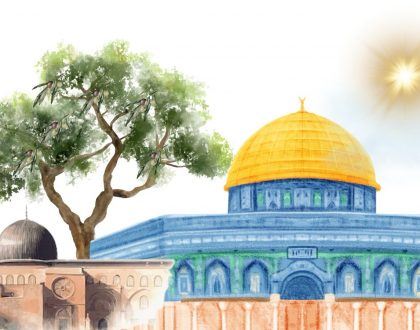Charity
by Hana
Did you know that Muslims give the highest amount in charity out of all religious communities?
A 2013 poll showed that the British Muslim community donated more money per person per year than any other religious group or atheists.
Zakat, a specific type of annual charity, is the central pillar of Islam that holds up a community, and is closely associated with Salah, or prayer. 82 separate verses of the Quran command us both to pray and give zakat, which shows us that just as praying is compulsory, paying zakat definitely is too. In Islam, charity is a right of the poor, not a favour from the rich.
Zakat is, in simple terms, a savings tax. And while you may not like the idea of obligatory charity – like some Arab tribes who, after the death of Prophet Muhammad*, refused to pay – when compared to the 50% income tax high-earners in this country are paying, 2.5% really isn’t unfair.
Islam isn’t Communism; it recognises that some people will inevitably have more wealth than others and it isn’t against being rich and enjoying life. It simply warns us against becoming arrogant and extravagant, or feeling that wealth alone will shield us from God.
Muslims know that they will one day have to answer to God; that on the Day of Judgement we will be accountable for what He gave us. We will be asked what we did with our money, our health and our time. Did we use them to help others, support good projects in our community and make life better for those less fortunate? Or did we use it only for selfish reasons?
If we use our money properly, we both get reward for good actions and cancel out our sins. But if we oppress others or fail to give our help to those who need it, and use our money for only selfish reasons, then our money will be used to punish us during our accountability.
So, going forward on this principle, we should give as much as we can, right? Just because 2.5% is obligatory, that doesn’t mean we should stop there.
Whatever else we give on top is called Sadaqa, or optional charity, and although money is the obvious thing, Sadaqa comes in many other forms. If done with the right sentiments, made with a sincere intention, any good deed can become charity. It could be guidance in the form of sound advice, or comfort and kindness. Even a smile can be charity if you smile for the benefit of others, i.e. to make them happy.
Another side of the sincere intention is that we should give because we are trying to help others, not because we want to show off. In Islam, the best charity is given in secret so it is only between you and God. The Prophet* once said that one of the seven categories of people who will be protected and honoured on the Day of Judgement is those who give charity in secret.
Charity also purifies our wealth. So not only do we get reward for giving, but in Islam we have this paradox of giving, whereby whatever you give you get back increased.
It’s similar to nature: if you trim something, like a plant, or the split ends of your hair, they will grow back healthier and better. So for Muslims, wealth is just like a plant. We believe that when you cut, or in this case give, away parts, you will actually get back more than you had before. God has promised to replace and increase everything that we give, so it’s good for us, and that little bit we gave is helping someone else, so it’s good for them too. And if we’re getting back more than we gave, logically, not only is it best to give as much as possible, but also to give the best that we can.
Muslims are told to give out of the best that we have, to give away what we love and want for ourselves, not just things we don’t want anymore and are just getting rid of. The best form of charity is when we give money we have earned ourselves, through honest means. Whenever we give from money we have worked hard for, our good deed is multiplied.
And because we’re getting reward for giving, one way of looking at it is that the person you’re giving to is actually doing you a favour by receiving it. So, instead of reminding them and making them feel indebted to you, we should feel grateful to them.
And as well as individuals, charity also helps communities. If monetary charity were given continuously by the whole community, it would create a circulation of wealth. Money would not be hoarded in bank accounts and spent only on luxuries, but would be lent and given and filtered to everybody, bringing people closer together and building a stronger community.
The ultimate examples of charity come from the Prophet Muhammad* and his companions. When the Prophet* first started preaching, the Quraysh (people of Makkah), in their greed, assumed that he was making it up for wealth and power, and offered him as much money as he wanted to stop spreading his message. However, the Prophet* refused, and, even after the conquest of Makkah, when he became the leader of the entire Arabian Peninsula, he gave away almost everything he had in charity. When he died, there was not enough food in his house for even one meal, and his only possessions were his mule, his sword and shield, and a few clothes
His best friend, Abu Bakr, was also known for his extraordinary generosity. When the community gathered at the mosque for the dawn prayer, Abu Bakr would already have donated charity to several people on the way. As a reasonably rich man, he used his wealth to help others, buying slaves just so that he could set them free.
On one occasion the prophet asked his companions how much they would be prepared to give in charity. One man, Umar RA, offered half of everything he owned, and Abu Bakr was willing to donate his entire fortune.
Similarly, the Prophet*’s wife Aisha would give away anything she had. As long as there was anything at all to give, no beggar ever left their home empty handed. Once, a beggar came to her house asking for food. The only thing she had in the house was a piece of bread, which she told her maid to give. Her maid reminded her that she was fasting and there was literally nothing else in the house for her to break her fast on later. Aisha answered that she should help the hungry woman, and that they would worry about dinner later. By the evening she had been sent a dish of cooked meat, which she used to illustrate to the maid the teaching that ‘whatever you give in charity you get back increased.’
On another occasion a woman came to Aisha’s home with her two children. All Aisha had was three dates, which she gave. The woman gave one to each child, but when both still looked hungry after eating them she split the last one in half and gave her children the one she had been intending to eat herself. Aisha was moved to tears, and the episode also inspired a young Moroccan woman, Fatima al-Fihri, when she inherited a large fortune in the year 829, to donate it all to fund the founding of one of the first universities in the world, the University of al-Qarawiyyin, to enable the passing on of beneficial knowledge.
This university is still studied at today; knowledge from the past being used to enlighten and help modern society. Teaching can also be a form of charity. In Islam, if you teach someone something beneficial you get reward. If the person you taught goes on to teach someone else you get reward for that too. And the next person, and the next one, and the one after that. This can go on and on, even after your death Muslims believe that you continue getting reward for things you did in your lifetime that are still having positive effects. This could also be something like paying for a well to be dug that people continue to use for centuries.
If a woman over a thousand years ago could do something that has had such long-lasting benefits, we today are definitely in a position where we have the means to do something too.
*peace be upon him
Written by Hana Khan in 2015
Recommended Posts

Masjid al Aqsa – why it has a very special place in our hearts
November 29, 2023

Palestine: The Holy Land
November 23, 2023

